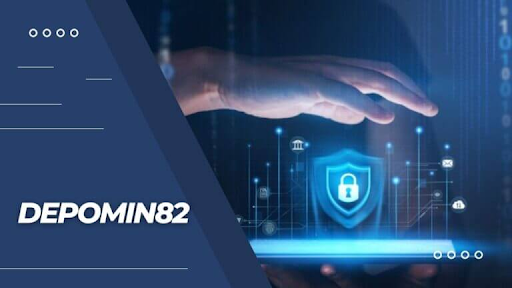Certidor: Transforming Digital Certification and Trust in the Modern World
In a world where data flows rapidly across borders and industries, ensuring the security and authenticity of digital information is more critical than ever. Whether it’s personal identity verification, academic credentials, legal documents, or financial transactions, the need for reliable and verifiable records is increasingly apparent. Certidor is an innovative solution that addresses these challenges head-on, offering a secure, tamper-proof system for digital certification. By combining cutting-edge technologies like blockchain and biometric verification, Certidor is redefining the standards for digital trust and integrity.
The Growing Importance of Digital Certification
As we live in an increasingly digital world, the volume of online interactions and exchanges has grown exponentially. The need to verify digital records is essential to maintaining security and trust. Every day, individuals and businesses share sensitive information across digital platforms, but traditional methods of certification are no longer sufficient to address the growing threats of fraud, identity theft, and misinformation.
For years, traditional methods like notarization, physical signatures, and paper certificates have been used to verify the authenticity of documents. However, these methods are vulnerable to manipulation, loss, and forgery. To address these weaknesses, modern solutions like Certidor have emerged, leveraging advanced technologies to ensure the integrity of digital records.
What is Certidor?
Certidor is a revolutionary platform designed to ensure the authenticity of digital documents through the use of blockchain technology and biometric verification. At its core, Certidor is about building trust in the digital world by offering a solution that is both secure and reliable. By using these advanced technologies, Certidor creates immutable records that cannot be altered or tampered with, providing businesses and individuals with the confidence that the documents they handle are legitimate.
Certidor allows users to digitally certify a wide range of documents, from contracts and agreements to academic credentials and identity verifications. The platform’s combination of blockchain and biometric security ensures that documents remain secure, while users’ identities are protected from unauthorized access.
The Power of Blockchain Technology in Certidor
Blockchain technology is a critical component of Certidor’s digital certification system. Blockchain is a decentralized, distributed ledger that records transactions across multiple computers, ensuring that information is transparent, secure, and immutable. Once a piece of data is added to the blockchain, it cannot be altered or deleted without the consent of the network participants. This makes blockchain an ideal technology for verifying digital records and ensuring that they remain unaltered over time.
How Certidor Uses Blockchain for Digital Certification
Certidor integrates blockchain into its platform to create tamper-proof records of digital documents. When a document is uploaded to Certidor for certification, it is encrypted and stored on the blockchain. This process creates a unique digital signature for the document, which acts as a proof of authenticity.
The blockchain serves as a public ledger, allowing users to verify the integrity of the document. By checking the unique digital signature of a document against the blockchain, anyone can confirm that the document has not been altered, ensuring its validity. This immutable nature of blockchain is a key feature that makes Certidor such a powerful tool for digital certification.
Biometric Verification: Adding an Extra Layer of Security
While blockchain provides a secure method for verifying the authenticity of digital documents, Certidor takes security to the next level by integrating biometric verification into its platform. Biometric verification uses unique physical characteristics, such as fingerprints, facial recognition, or iris scans, to confirm a person’s identity.
In an era where identity theft and fraud are rampant, biometric verification offers a powerful defense against unauthorized access to sensitive information. Certidor uses biometric data to ensure that only authorized individuals can access certified documents or perform any action on the platform.
How Certidor Uses Biometric Verification
When users attempt to authenticate their identity through Certidor, they are prompted to provide biometric data, such as a fingerprint or facial scan. This data is then compared with the information stored on the platform to verify the user’s identity. If the biometric data matches, the user gains access to the document or transaction.
This seamless and secure process ensures that documents are not only tamper-proof but also accessible only by the rightful owner or authorized party. It adds an additional layer of security to the Certidor platform, providing peace of mind to both individuals and businesses.
Applications Across Industries
Certidor is not limited to one sector; its versatile technology is transforming several industries by providing a secure way to manage and verify digital documents. Here are some of the key sectors benefiting from Certidor’s digital certification solutions:
1. Education
Certidor is revolutionizing the way academic credentials are verified. With the rise of online learning and remote education, verifying the authenticity of degrees, diplomas, and certificates has become more important than ever. Certidor’s platform enables educational institutions to issue and verify digital credentials securely, reducing the risk of fraudulent degrees and certificates.
By certifying academic records on the blockchain, Certidor ensures that students’ achievements are accurately represented and easily verifiable by potential employers, institutions, and other stakeholders.
2. Finance
The financial sector deals with sensitive data, and ensuring the authenticity of financial transactions, contracts, and identities is critical. Certidor’s blockchain technology provides a secure and transparent way to verify financial documents and transactions, minimizing the risk of fraud or data manipulation.
For example, banks and financial institutions can use Certidor to certify loan agreements, contracts, and customer identities, ensuring that these documents are legitimate and tamper-proof. This not only helps prevent financial fraud but also builds trust between institutions and their clients.
3. Legal
In the legal field, Certidor provides an essential tool for certifying contracts, wills, and other legal documents. Lawyers and law firms can use Certidor to ensure that documents are authentic and tamper-proof, reducing the risk of legal disputes arising from forged or altered documents.
By certifying legal documents on the blockchain, Certidor provides an irrefutable record of the document’s authenticity, which can be used as evidence in court if necessary.
Reducing Risks in the Digital Age
The digital landscape is fraught with risks, including fraud, data manipulation, and unauthorized access. Certidor’s solutions address these concerns by offering robust tools for digital verification and certification.
Fraud Prevention
Certidor’s blockchain and biometric security measures help businesses and individuals reduce the risk of fraud. By providing a secure and transparent way to certify documents, Certidor ensures that only legitimate records are recognized. This fosters a more trustworthy digital environment, reducing the chances of fraudulent activities.
Data Manipulation
With Certidor’s tamper-proof digital certificates, users can be confident that their documents have not been altered. The combination of blockchain and biometric verification prevents unauthorized modifications, ensuring that data remains accurate and reliable throughout its lifecycle.
Unauthorized Access
Unauthorized access to sensitive information can have disastrous consequences, especially in industries like finance and healthcare. Certidor’s biometric verification ensures that only authorized individuals can access certified documents, adding a layer of security that protects against identity theft and data breaches.
The Future of Digital Certification
As the world continues to evolve digitally, the demand for secure and reliable digital certification will only grow. Certidor is at the forefront of this transformation, continuously innovating to stay ahead of emerging threats and challenges.
Certidor’s commitment to ongoing research and development ensures that it remains a trusted leader in digital certification. By exploring new technologies and improving existing solutions, Certidor is well-positioned to meet the growing demand for digital trust in the future.
Conclusion
Certidor is revolutionizing the way we authenticate and secure digital records. By combining the power of blockchain and biometric verification, Certidor provides a secure and transparent method for certifying documents and identities. Whether you are an individual looking to verify your identity or a business seeking to secure sensitive documents, Certidor offers a comprehensive solution to the challenges of the digital age.
As digital certification becomes increasingly essential, Certidor’s innovative platform is setting new standards for security, trust, and authenticity. In a world where misinformation and fraud are prevalent, Certidor is paving the way for a more secure and trustworthy digital future.
FAQs
1. What is Certidor?
Certidor is a digital certification platform that uses blockchain technology and biometric verification to ensure the authenticity and security of digital documents and identities.
2. How does Certidor use blockchain technology?
Certidor uses blockchain to create immutable, transparent records of certified documents. Once a document is certified, it is encrypted and stored on the blockchain, providing a unique digital signature for verification.
3. Why is biometric verification important in Certidor?
Biometric verification ensures that only authorized individuals can access certified documents or perform actions on the platform. It adds an extra layer of security to protect against identity theft and unauthorized access.
4. Which industries can benefit from Certidor’s services?
Certidor is beneficial for industries like education, finance, and legal sectors, where document authentication and verification are critical to ensuring security and trust.
5. How does Certidor prevent fraud and data manipulation?
Certidor combines blockchain and biometric verification to create tamper-proof digital records, reducing the risk of fraud and ensuring data accuracy throughout its lifecycle.
6. How do I use Certidor to verify a document?
To verify a document, simply check its unique digital signature against the blockchain using Certidor’s platform. This ensures the document’s authenticity and integrity.
7. Is Certidor secure for sensitive information?
Yes, Certidor provides a secure environment for certifying and verifying documents, using state-of-the-art technologies like blockchain and biometric security to protect sensitive data.
8. Can Certidor help verify academic credentials?
Yes, Certidor is ideal for verifying academic credentials, reducing the risk of fraudulent degrees or certificates in the educational sector.
9. How does Certidor protect against unauthorized access?
Certidor uses biometric verification, ensuring that only authorized individuals can access certified documents, providing an additional layer of protection.
10. What makes Certidor different from traditional certification methods?
Unlike traditional certification methods, Certidor provides a digital, secure, and transparent way to verify documents, ensuring that records are tamper-proof and easily verifiable at any time.
Keep an eye for more latest news & updates on Hamro Solarllc!






